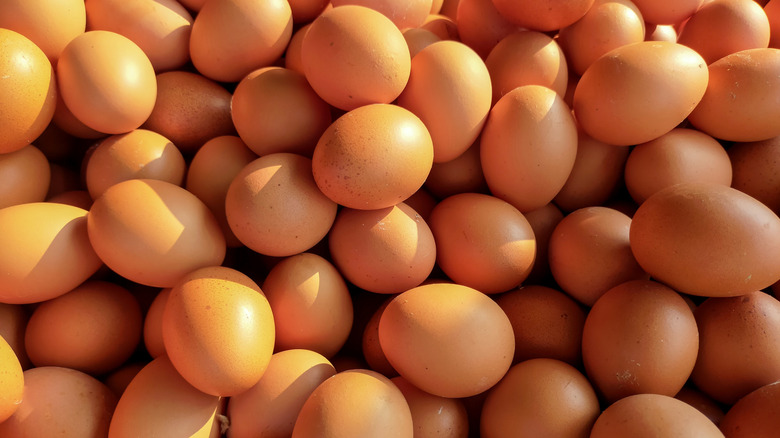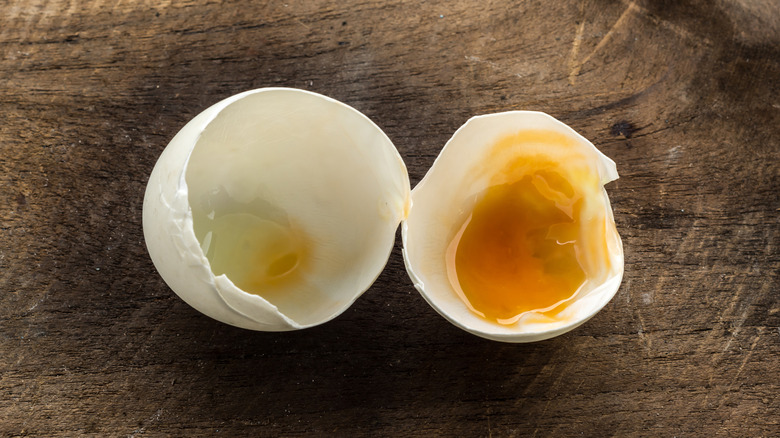Farm Fresh Vs Store-Bought Eggs: Which Ones Have A Longer Shelf Life?
Thanks to avian flu affecting more than 130 million hens, eggs can now cost more than $8 per dozen in some stores. Certain national chains, like Trader Joe's, have even imposed limits on how many cartons people can buy (although the price hikes have hardly deterred Costco shoppers). While it is still cheaper to buy eggs from the store than to own chickens, you might be wondering what the relative shelf-lives are for store-bought versus farm-fresh eggs — which kind lasts longer?
Washed farm-fresh eggs last up to two months in the refrigerator, while unwashed farm-fresh eggs last even longer — up to three months in the fridge. According to the FDA, store-bought eggs are best used within three weeks but they can last up to a month and a half.
Store-bought and washed farm-fresh eggs must be kept refrigerated and should not remain at room temperature for longer than two hours, lest they put you at greater risk for food poisoning. To keep them fresh for the longest period, they should both be kept in egg cartons, since those vessels were made to cradle and protect the delicate shells. (Sometimes the simplest storage solution is the best.)
How to tell if your eggs are spoiled
We all lose track of how long something has been in the fridge, and with farm-fresh eggs especially, you might not know if they were washed, which shortens their shelf-life. This is because washing removes a protective layer, sometimes called the "bloom," which keeps bacteria from penetrating the shell.
One of the easiest ways to work out if your eggs have spoiled is to look at them. Eggs can actually grow mold — it's like a powdery mildew. But the other way to check is to sniff them after you've cracked them (you might want to use the float test, which we'll get to, if you're cracking them directly into other ingredients, like a batter). If the eggs smell rotten — and it will be unmistakable — or if they smell like anything except, well, nothing, they should be tossed.
If you don't want to crack your eggs first, you can float them instead. Just fill a glass, measuring cup, or even a bowl with cold water and then place the egg inside. If the egg immediately sinks right to the bottom, it's still fresh. If it floats, on the other hand, it is spoiled and should be thrown in the garbage. (If it's kind of in between a full sink and a full float, it might still be okay to eat; just make sure to cook it all the way through).


